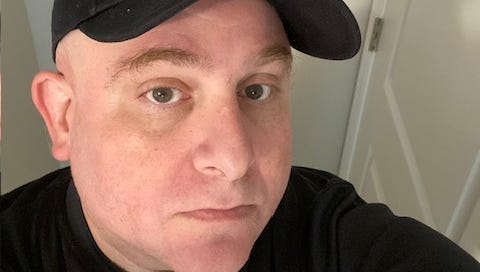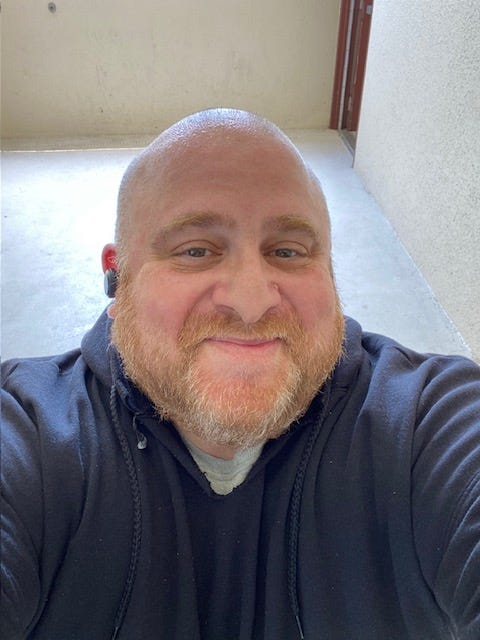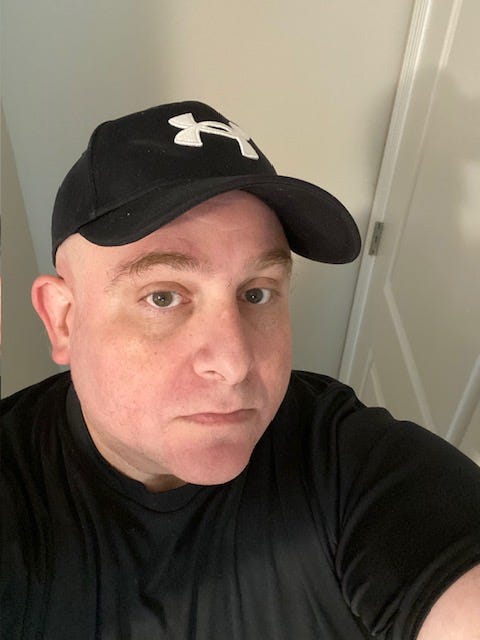If you have followed me for a while, you probably have seen that I have been struggling a little for the last couple months. I have just been feeling off. My depression has started to come back a little harder than usual and I really do not know why.
My life was extremely hard and rough in 2018. Losing a business, struggling in life, and being unmedicated do not make a good mixture. But slowly I made strides to be better. I was able to support myself through selling art and sports cards. While I never was able to spend time with my family, I was able to. While I did gain a ton of weight, I slowly started to lose over the last year. So after five grueling years of trying to recover, I feel like I did.
So that is why I had to check myself on being depressed. I felt like a burden. I would ask people if they wanted art like I have, and just felt annoying. I would keep to myself more. I felt worthless at times. None of these were rational.
But it took some time to realize it. Depression can be very convincing, especially when you take medication to control it. But honestly, it was not working like it once did. I have not changed anything since the pandemic. And during the pandemic, everyone had a reason to be depressed, so I did not feel alone. This time I did.
So a couple of months ago I made an appointment with my doctor. I told her everything I felt and she changed up what I was taking. And slowly it started to make me feel better and better.
I realized there was not a lot to be depressed about. My family was doing well. My kids were doing well. My son and I started to workout together. His goal is to be a starter for the varsity team at his school. It is a realistic goal in my opinion and watching him play. But I told him I would help him at the gym and he could work with his baseball trainer on everything else.
My daughter enjoys sports and finally found one she wants to pursue. Archery. She is athletic but her passions are music, art, and reading. But she went to an archery camp and fell in love with it. She explained all the rules to me and everything.
I have begun making newer art. I have taken some suggestions about topics some might want to hang up and some others will pass on. And I also found a way to list sports cards quicker, so I was able to list over 2,500 on Ebay.
So with all of that and my medication kicking in, things were great.
Then a couple of weeks ago I heard a voice that I know all too well waking me up around 3am.
It was my old friend anxiety.
So at 3am, anxiety decided to explain why I should worry about everything. Why I needed to worry about money and my kids and my car getting an oil change and my health.
None of it was rational. So I tried to ignore it all. Then anxiety pulled out a detailed PowerPoint presentation about why I needed to worry about every little thing possible.
And with that, I believed every bit of it.
So for the last two weeks, I have woken up at 3am worried about everything. Worried about my son’s birthday next week. What in God’s name is there to be worried about that? Oh, anxiety detailed exactly why. I was worried about gaining back weight after losing 146 pounds…
But I went the extra mile to make sure I would keep going. I posted more cards when I worried about money or pushed at more. I hated feeling anxious every single day. none of it makes sense. And it is draining. So draining. So after fighting with anxiety all day long, I was done. Only to fight with it again.
I hate anxiety just as much as I hate depression. Both are evil. Both lie. But you will never believe it when you go through it. And it truly sucks.
Last night I finally slept through the night. I do not know if anxiety tried to wake me up, but it didn’t. And today I decided to put into words what I have to be thankful for and also that I work extremely hard to not have to stress about things I have control over.
So I feel better. I realize anxiety lies. And will make sure I continue to realize that because I have a lot of good things going on.
Even if anxiety pulls out its PowerPoint presentation again.
Thank you so much for reading. Please subscribe for free if you have not. I try to update 4-5 times a week. And consider a paid subscription where you will get exclusive content, commenting access, and chat where you can ask me anything anytime. And if you like sports cards, I have a 50% off coupon on all my sports cards on Ebay this weekend under $100. And if you ever wanted to support, you can buy my art or throw me a tip here. Thank you for being here.






Having lived with both depression for decades and then adding on anxiety some years ago, I hear you. I recognize your struggles. Depression suuucks, and lies, all the time. But anxiety? Anxiety can kill you. And the kick in the (literal) head is that you can have both at the same time, they are completely different systems in the brain. Fun stuff.
Thank you for sharing this, for speaking up. In doing so you help to end the stigma, you give people hope, and you remind us that help is available - that treatment can work. Respect and gratitude - my highest praise.
[A digression, my own story (apologies):
All three of my children inherited the Serious Mental Illness that runs back generations on both sides of their family (I was divorced 18 years ago). My oldest, my son, emerged with symptoms beginning in his mid-teens, starting with panic attacks then running the spectrum through Bipolar 1 to his first full psychotic break at 17, comorbid with Substance Abuse Disorder, ending with treatment-resistant Schizoaffective Disorder w/ Psychotic Features, with schizophrenia driving the train. He died at 31, 9 months after his little brother died at 21 - he was Bipolar 1 as well, with a history of anxiety and self-harm, terrified he would end up with his brother's schizophrenia.
My middle child, my surviving daughter, has the alphabet soup - anxiety, depression, eating disorder, substance abuse disorder, PTSD, ADHD, and - we now realize - Borderline Personality Disorder (an outdated name, still called that in the DSM 5, but more appropriately referred to as Emotionally Unstable Personality Disorder, EUPD). EUPD means that you do not experience emotions in any "normal" way, and cannot regulate them as a neurotypical person would be able to. And it turns out that EUPD is the hardest SMI of all to live with - there are no medications, only the symptoms of the typically common comorbidities (see her list) might be helped with meds.
EUPD can only be helped with years and years of therapy, which is tough as people are therapy-resistant, experience any suggestion from therapists for developing coping skills as criticism. Many therapists will not even try to treat someone with EUPD. Add to all of that a terror of being abandoned...]
* You can see why I am deeply appreciative, grateful for your courage in sharing your own story. So many people are carrying their own sack of rocks, in isolation and suffering. So again, thank you. You are brave. Keep fighting the tricks our brains play, the lies they tell, and keep remembering all that is good in your life, especially the love for and from your beautiful family. Even after losing two of my three children, that is my comfort, my solace, my sanctuary - I had, and still have, all that love. So much love. Remember.
Sending you strength, Linda (a fellow 3 a.m.-er)